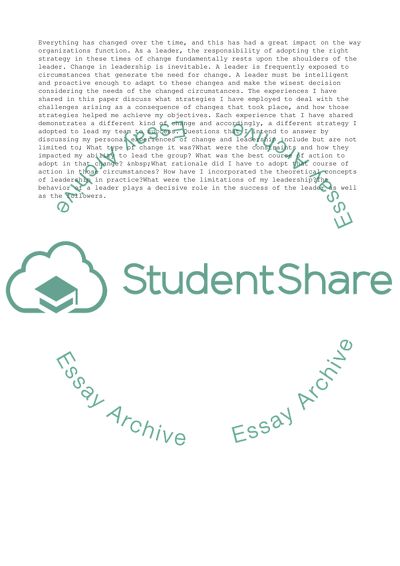Cite this document
(“How you would personally lead a team in times of changes Essay”, n.d.)
How you would personally lead a team in times of changes Essay. Retrieved from https://studentshare.org/management/1600538-how-you-would-personally-lead-a-team-in-times-of-changes
How you would personally lead a team in times of changes Essay. Retrieved from https://studentshare.org/management/1600538-how-you-would-personally-lead-a-team-in-times-of-changes
(How You Would Personally Lead a Team in Times of Changes Essay)
How You Would Personally Lead a Team in Times of Changes Essay. https://studentshare.org/management/1600538-how-you-would-personally-lead-a-team-in-times-of-changes.
How You Would Personally Lead a Team in Times of Changes Essay. https://studentshare.org/management/1600538-how-you-would-personally-lead-a-team-in-times-of-changes.
“How You Would Personally Lead a Team in Times of Changes Essay”, n.d. https://studentshare.org/management/1600538-how-you-would-personally-lead-a-team-in-times-of-changes.


